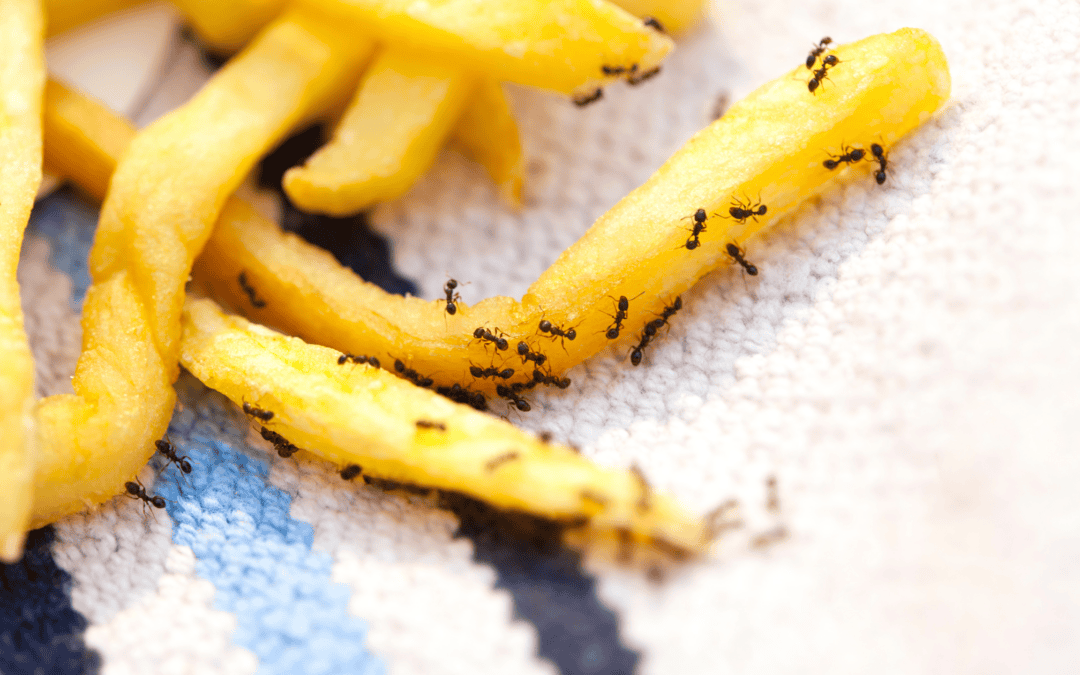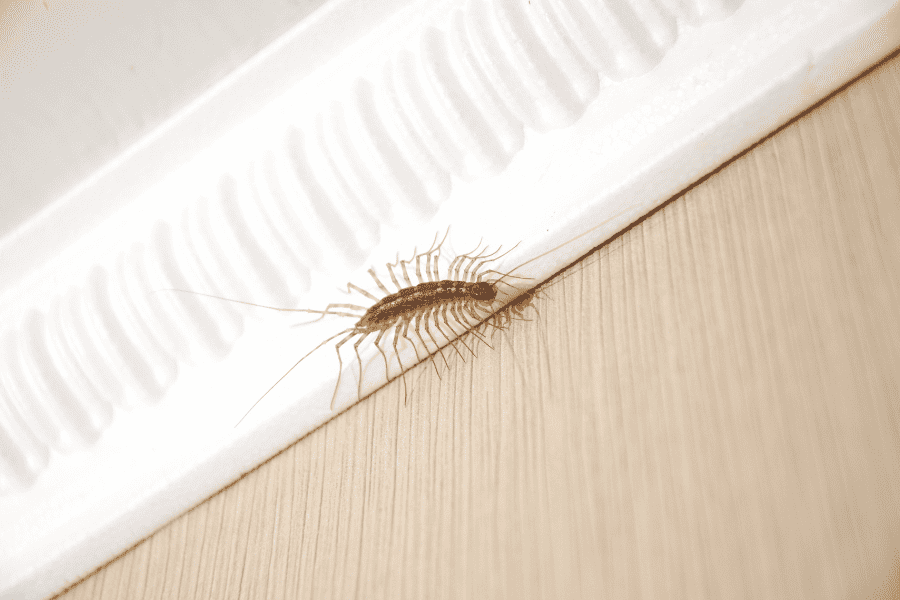READY TO GET STARTED?
REQUEST A FREE ESTIMATE
Fill out the form below or call (888) 466-7849 for a free, no-obligation estimate.

Summer in Miami means sunshine, ocean breezes—and unfortunately, pests. The city’s warm, humid climate is the perfect environment for ants, mosquitoes, cockroaches, and rodents to thrive. But instead of relying on harsh chemicals, you can take a greener, more sustainable approach to keep pests out. Let’s take a look at some green pest control tips to use this summer.
Miami’s heat and humidity, along with frequent rain, create ideal conditions for pests. Standing water attracts mosquitoes, while food and shelter draw in roaches and ants. Staying pest-free means taking proactive, eco-friendly steps to protect your home and the environment.
Cleanliness is the foundation of a pest-free home. By removing food and water sources, you can drastically reduce the chances of pests moving in.
Pests often find their way inside through tiny cracks and gaps. Blocking these entryways is essential.
Green repellents are just as effective as chemical-based ones without the environmental impact.
Mosquitoes require standing water to breed, making it crucial to eliminate these areas on your property.
A well-maintained yard makes it harder for pests to find shelter near your home.
By choosing eco-friendly pest prevention methods or partnering with green pest control experts, you protect your Miami home from summer pests while contributing to a healthier environment. These pest control practices reduce your reliance on harmful chemicals, protect local wildlife, and make your home healthier for family members and pets.
A bit of effort and a green approach can keep your summer pest-free and stress-free. Start today and enjoy the season without worrying about unwelcome guests! Give us a call or click the button below to schedule your FREE green pest control quote!

Summers in Bonita Springs bring warmth and outdoor fun, but they also invite summer pests like ants, mosquitoes, and rodents. Thankfully, you can manage these visitors using natural approaches that prioritize both your home and the environment. Follow these eco-friendly tips to enjoy a pest-free summer.
Ants are persistent, but reducing their appeal to your home is effective.
Planting mint or tansy near your home can also help discourage ants.
Mosquitoes thrive in humid summers, but you can reduce their activity.
Rodents look for food, water, and shelter during summer. Prevent their entry with these steps:
Nature offers its own solutions for pests through natural predators.
A thriving ecosystem can help keep pest populations in check while enhancing the beauty of your yard.
A clean home offers fewer opportunities for pests to linger.
Eco-friendly pest prevention protects your home while nurturing the environment. With strategies like eliminating entry points, planting natural deterrents, and fostering a balanced ecosystem, you can enjoy a comfortable Bonita Springs summer. A little preparation goes a long way towards ensuring your home is a haven for you, not pests, all season long. Find a professional pest control company near you for even more expert tips and a free comprehensive inspection and treatment plan.
Give us a call today or click the button below for a FREE green pest control quote!

When spring arrives in Carrollton, Georgia, it’s hard not to feel excited about the sunny days, blooming flowers, and warmer weather. But as your family starts to enjoy the outdoors, some unwelcome visitors might tag along too. Mosquitoes, ants, and termites thrive in the warmer months and can quickly turn both your backyard and home into their playground. Thankfully, with a little know-how and the right plan, you can keep your home pest-free and healthy for everyone in the family, including pets! Here are some warm-weather pests to watch out for and tips to help you take action against them this spring.
Mosquitoes are a classic spring and summer annoyance. They seem to appear the moment you step outside, whether you’re hosting a barbecue or just unwinding on the porch. Carrollton’s warm and humid weather makes it an ideal spot for mosquitoes to breed, especially near standing water. Beyond being irritating, mosquitoes can also pose health risks, carrying diseases like West Nile virus.
Ants are tiny but determined and can show up both indoors and outdoors this time of year. They’re especially drawn to crumbs on countertops or sugary drinks left by the pool. Fire ants, which build large mounds in lawns, can also be a real concern if kids or pets accidentally disturb their nests.
Termites are a homeowner’s nightmare, especially because they can cause significant damage without your family even noticing. Subterranean termites, common in Carrollton, often start in moist, dark areas before creating costly problems in home foundations or walls. Spring is when you’ll see termite swarms, a big sign that these pests might be nearby.
Spring should be about family fun—not dealing with warm-weather pest problems. By tidying up, sealing entry points, and removing things that attract pests, you’re already ahead of the game. Don’t wait until pests take over. Spring into action now by calling your local pest professionals so you and your loved ones can enjoy everything great about Carrollton’s sunny season, worry-free!
Give us a call or click the button below to get started with a FREE pest control quote.

Summer is synonymous with warmth, outdoor fun, and unfortunately, pests. In Georgia, the hot and humid climate creates the perfect breeding ground for a variety of pests that can invade your home and yard. Understanding why summer is the peak season for pests, identifying common summer pests, and learning effective prevention tips are essential for maintaining a pest-free home. Here’s a comprehensive guide to help you manage and prevent summer pests.
Despite your best efforts, some pest problems require the expertise of a professional pest control company. In Georgia, where the pest population can be particularly persistent, regular pest management can make a significant difference. Here are some benefits of professional pest control services:
When searching for “pest control services near me,” look for a reputable company with positive reviews and proven results. A good pest control company will offer customized plans to suit your specific needs, ensuring your home remains pest-free throughout the summer and beyond.
Summer in Georgia brings with it an array of pests that can disrupt your home and outdoor activities. By understanding the common summer pests and taking proactive measures to prevent them, you can enjoy a pest-free summer. And remember, professional pest control services are always a reliable option to keep your home safe from unwanted invaders.

Summer is a time of warmth, sunshine, and relaxation. Unfortunately, it’s also a time when a variety of pests are most active. From ants and flies to roaches and centipedes, these insects can be a major annoyance and even a health hazard. Discover common summer pests below:
Ants are a common sight in the summertime, especially in kitchens and pantries where they search for food. To prevent ants from invading your home, make sure to keep your kitchen clean and free of crumbs and spills. Store food in airtight containers and keep ripe fruit in the refrigerator. Sealing cracks and holes in your home’s foundation and walls can also prevent ants from entering.
Flies are a common summertime pest, buzzing around and spreading germs wherever they land. To prevent flies from invading your home, make sure to keep doors and windows closed or screened, especially during the hottest parts of the day. Keep your kitchen clean and dispose of garbage regularly.
Roaches are another unwelcome summertime pest. They can carry diseases and trigger allergies in some people. To prevent roaches from entering your home, seal any cracks or gaps in your home’s foundation and walls. Keep your kitchen clean and free of crumbs, and store food in airtight containers.
Centipedes can appear creepy, with many legs! They are often found in dark, damp areas such as basements and bathrooms. To prevent centipedes from invading your home, keep these areas dry and well-ventilated. Seal any cracks or gaps in your home’s foundation and walls.
If you begin seeing these summer pests around your home, give your local pest control company a call for a free inspection and a customized treatment and prevention plan!